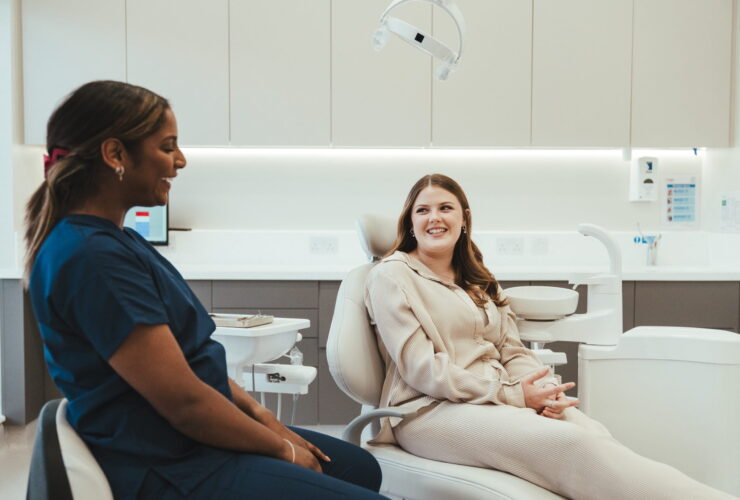May is Skin Cancer Awareness Month when health professionals and organizations strive to educate the public about the importance of early detection and prevention of skin cancer. While dermatologists are often the first medical professionals that come to mind, a lesser-known fact is that dentists can play a vital role in screening for signs of skin cancer. In this blog post, we will explore how dentists can contribute to skin cancer assessment, the signs and symptoms, and the pathways for referral for patients with areas of suspicion.
Dentists as Skin Cancer Detectives
Dentists are uniquely positioned to detect early signs of skin cancer because they view a patient’s face, neck, and oral cavity during routine dental examinations. Dentists are highly trained in identifying abnormalities, including suspicious lesions, which can include various types of skin cancer. By conducting a comprehensive assessment, dentists can observe changes in the skin, mucous membranes, and other soft tissues, allowing them to detect potential signs of skin cancer at an early stage. At The Dental Box, our comprehensive new patient dental assessment includes a full series of both extra-oral and intra-oral clinical photographs which can serve as a vital comparison tool when evaluating signs of change.
Signs of Skin Cancer
Skin cancer can present itself in various forms, each with distinct signs and symptoms. Dentists should be aware of the following indicators during their skin cancer assessment:
- Asymmetry: One half of the mole or lesion does not match the other half.
- Border: The edges of the mole or lesion are irregular, blurred, or poorly defined.
- Colour: The mole or lesion displays varying shades of brown, black, red, white, or blue.
- Diameter: The mole or lesion is more significant than 6 millimetres in diameter.
- Evolution: The mole or lesion changes in size, shape, colour, or elevation.
Referral Pathways for Patients
When a dentist identifies a suspicious area during an assessment, it is crucial to establish a pathway for referral to a dermatologist or other healthcare professionals specializing in skin cancer diagnosis. Dentists can play an integral role in educating patients about the need for further evaluation and prompt referral, potentially saving lives. Dentists can inform patients about local dermatologists, cancer centres, or other appropriate healthcare providers specialising in skin cancer assessment.
Useful Resources
For further reading and useful resources on skin cancer awareness, assessment, and referral pathways in the UK, consider exploring the following links:
- British Skin Foundation: https://www.britishskinfoundation.org.uk/
- Cancer Research UK – Skin Cancer: https://www.cancerresearchuk.org/about-cancer/skin-cancer
- National Health Service (NHS) – Skin Cancer: https://www.nhs.uk/conditions/skin-cancer/
- Oral Health Foundation – Mouth Cancer: https://www.dentalhealth.org/mouth-cancer
- Locate a dermatologist near you through the British Association of Dermatologists: https://www.bad.org.uk/for-the-public/patient-information-leaflets/find-a-dermatologist
Conclusion
Dentists, with their unique vantage point and expertise, can be instrumental in early detection and referral for an assessment. By incorporating routine skin evaluations into dental examinations, dentists can help save lives by identifying suspicious lesions and ensuring timely referral for further evaluation. Collaborating with dermatologists and other healthcare providers, dentists can contribute significantly to raising awareness about skin cancer and improving patient outcomes. Remember, prevention and early detection are key in the battle against skin cancer, and every dental visit can be an opportunity for a potentially life-saving assessment.
Explore the hidden role of dentists in early detection and prevention. Take a proactive step towards your oral and skin health by booking a dental assessment at The Dental Box today. Ensure comprehensive care and peace of mind.


